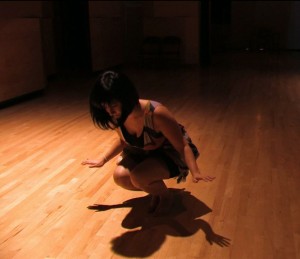MFA Monday
Happy Monday Framers! Here’s part deux of Rosie Trump’s fantastic MFA Monday column!
So You Think You Want a M.F. A.?
Part II: Be. Here. Now.
By Rosie Trump
Graduate school should blow your mind. It should turn your world upside down. It should make you question everything you thought you knew. If doesn’t, you are not doing it right.
Focused time and space like this will never exist for you quite the same again. I advise that you do, make, embrace and take on as much as you can… and then just slightly more. Process later. This experience is designed to test your limits, alter your patterns and irreconcilably change your perspective.
Summertime and the living is not easy

It’s a bright and shiny new academic year! The very first thing you need to do is think nine months into the future to the summer. Most programs do not provide you with any funding over the summer. So you need to figure out how you will pay your rent, bills and expenses. Most likely you will want to travel over the summer, so factor those costs too. You can get very creative with financing your summer. However (as I mentioned in Part I) do not take out student loans to do it!
Here are a few of my suggestions:
- Budget during the year. Squirrel away a chunk of money every month for nine months while you are receiving a regular income. This will not be easy, because you are probably not making very much as it is. Still, there are many creative (and fairly painless) ways to cut corners. Rent a room in a house with other grad students rather than renting a one-bedroom apartment. This could cut your monthly costs by almost half. Grocery shop at Food4Less rather than Whole Foods. Invest in a coffee thermos and swear off those $4 Starbucks lattes. Pack your lunches (and dinners for those late rehearsals) instead of eating on campus. Shop at thrift stores. I did not set foot inside a ‘regular’ clothing store during grad school and (long after that until I secured a full time job.)
- Get another job. I worked three jobs before attending grad school to save up money, and I ended up working three jobs during grad school, as well. I taught a class at the local ballet academy, worked as a dance librarian and stage managed for the university’s theater. What did all these jobs have in common? Low time requirements, flexible schedules and relatively high wages. This is the key to picking up a side job in graduate school. Your number one work priority has to remain the M.F.A.
- Apply for summer funding. This route is a little bit trickier because there may not be much available to you, however it is worth a few hours of research to find out. Does your university offer any summer study grants? Are there state or national research fellowships you qualify for? Does your department run summer camps or summer classes you could teach? Some of these opportunities may not be widely advertised, so ask around. This is why it is so important to start this inquiry in October, not March.
3, 2, 1 GOAL! or How to make the most of your M.F.A. from the very start
I am a very big advocate of setting goals. I think setting concrete goals are the keys to achieving what you want. My advice to you is to create a 5 Year Plan for yourself at the very beginning of graduate school. The 5 Year Plan outlines two to three goals per semester/quarter, including the summers. It is important that your goals extend beyond your time in graduate school. This way you can pointedly use some of your time in the academy to gain the specific skills, credentials, etc. needed to achieve those future goals. Each year you should revise your goals to reflect progress in your creative, professional and personal life.
Example of a 5 Year Plan (all goals are in addition to academic requirements)
Year 1 (M.F.A year 1)
- Fall: research summer funding, create a new solo
- Spring: apply for the university’s research mini-grant, submit solo to local showcase, co-choreograph a duet with fellow M.F.A., attend ACDFA, audition for ADF summer scholarship
- Summer: attend ADF, seek professional networking opportunities
Year 2 (M.F.A year 2)
- Fall: spearhead the graduate student concert, submit abstract to graduate student/regional conference, choreograph a group choreography, submit duet to the regional fringe festival
- Spring: meet with advisor and/or a faculty member to discuss post-graduate goals/ job prospects, set up mentoring meetings, plan trip to NYC
- Summer: travel to NYC, take workshop with superstar choreographer, audition for dream dance company
Year 3 (M.F.A year 3)
- Fall: apply for conference attendance grant through GSA, submit roundtable and performance abstract to national conference, begin creating job application materials
- Spring: workshop job materials with fellow M.F.A. students, choreograph a new solo, collaborate on new project with Film Studies graduate student, apply for summer internship at Jacob’s Pillow
- Summer: submit M.F.A thesis project to regional/national festivals, internship at Jacob’s Pillow, seek professional networking opportunities
Year 4 (Post M.F.A year 1)
- Go on the job market, mount solo show, begin new collaboration with composer, submit dance film to regional and national film festivals, seek professional networking opportunities
Year 5 (Post M.F.A year 2)
- Apply for artist residencies abroad, launch crowd surfing campaign to fund new dance film project, seek professional networking opportunities
The Perks of Being a M.F.A. Student
Pursuing a M.F.A. puts you in a wonderful situation–one where you have access to resources! But resources are only valuable when you know how to use them and make the time to do so.
Health Insurance: You may have been living for years without affordable access to health care. Find out everything your new health insurance will cover and book your appointments—the dentist, the chiropractor, acupuncture, prescriptions, women’s health, etc. Make the time for this now, because it will be gone before you know it.
Studio space: Vanished (for now) is the $20 an hour studio rental fee. Use as much rehearsal time as you can! Book frequent and regular studio space and then promise yourself you will never skip it. Even if you go in and just roll on the floor for an hour– GO!
Technology: Most universities have state of the art computer and media labs. You can use and rent computers, video cameras, digital cameras, light kits and recording equipment. Learn how to use this equipment and then rent it for your own photo shoots, dance films, graphic design projects, etc. Want to learn Final Cut Pro, Photoshop or Illustrator? They may offer beginner workshops on this software.
Classes: Depending on the flexibility of your M.F.A. program curriculum, you may be able to take courses outside your direct program. I took a Video Art course and an Art Theory course during my M.F.A. studies, and these courses were valuable to me far beyond the course content. If you can, take the opportunity to (thoughtfully) supplement your program with outside courses.
There is No Crying in Baseball or as a M.F.A.
Feedback, feedback, feedback! Get it EVERY chance you can. Listen to your critiques. Use them to force yourself to make better work. Do not take anything personally. Get really good at talking about other people’s work.
Last but certainly not least… build a support system. Your cohort of fellow M.F.A. students will most likely be your lifeline to sanity, your biggest allies, your future colleagues, your (yes) crying shoulders and your closest friends. You will not love them all, but fostering a positive community should be a strong and early priority.
MFA Mondays
